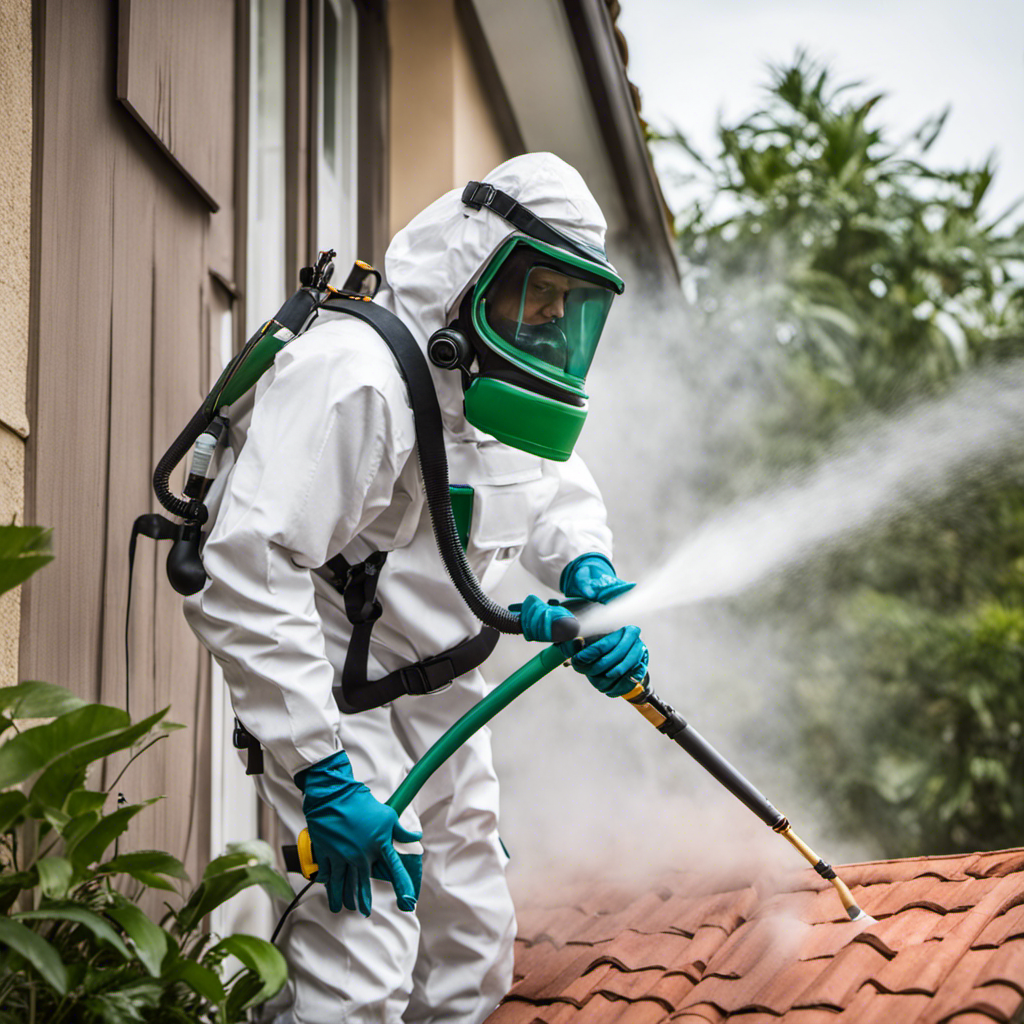The Main Principles Of Pest Control
The Main Principles Of Pest Control
Blog Article
Pest Control Can Be Fun For Everyone
Table of ContentsPest Control Fundamentals ExplainedThe Greatest Guide To Pest ControlAn Unbiased View of Pest Control9 Easy Facts About Pest Control ExplainedPest Control Fundamentals Explained
Water (wetness) is taken into consideration a conducive problem that will urge parasite infestations and can also result in inadequate air top quality inside. Remove tree and/or shrub branches that are touching the exterior walls or roof covering of a home since bugs, including rats and ants, frequently use them to find a way right into the home (Number 6).
Remove or routinely clearing water-holding containers that give insect reproducing websites. Evaluate the within your home and removing areas where pests can hide and breed inside your home. Get rid of cardboard boxes and securing publications and other paper products in plastic sealed containers. Maintain food in secured containers, including family pet food.
As soon as a parasite has been regulated, it does not imply the work of parasite control has ended. Parasite control need to be taken a component of regular home upkeep, especially in states like Florida experience hefty bug stress. Regularly employing a preventative technique to pest control using tracking can conserve cash and stop damage to your home and the items saved within.
Companies are required to have a certified operator in each of these groups if they are offering these services. The accredited operator is an individual who has satisfied the state requirements to exercise bug control. Qualified operators must pass a state assessment in a specific category of pest control.
Pest Control Things To Know Before You Buy
The state meaning is an "individual holding a current parasite control driver's certificate provided by the department." (FS 482.021). Who is the "qualified driver in-charge?" The certified driver in-charge is liable for the daily procedures at the place of the parasite control service. He or she is in charge of choosing the strategies and items used in servicing your home.
What are the requirements to come to be a specialist? After being hired by a parasite control company, the licensed driver in-charge has up to thirty day to make an application for an identification card for the new professional with FDACS. Within 6 months of hire, the specialist is needed to have at the very least 40 hours of documented training.
The other hours remain in undefined topics within the groups of basic household parasites, termites and wood-destroying microorganisms (WDO), and yard and decorative bug administration. After the preliminary training, the technician is needed to have 2 hours of training each year (Pest Control). Records needs to be kept by the company and offered to FDACS for review upon demand
Unknown Facts About Pest Control
Here are several of the crucial benefits of this approach: Single pest control solutions are made to deal with a details parasite concern available. It's ideal for those that are dealing with a solitary, isolated infestation and want a fast resolution. In most cases, an one-time solution is extra affordable than a long-term insect control strategy.
Pest control professionals will certainly take activity to remove the insects on the area. An insect control strategy, on the other hand, involves a recurring connection with an insect control provider.
Right here are the crucial attributes and advantages of bug control strategies: Insect control prepares offer recurring, year-round protection versus a range of parasites. They are ideal for property owners Check Out Your URL who wish to prevent invasions and maintain a pest-free atmosphere. These strategies typically entail arranged check outs from professional bug control specialists who inspect, treat, and check your building throughout the year.
Bug control plans are proactive in nature. They aim to discover and resolve parasite problems prior to they come to be full-on problems.
Some Ideas on Pest Control You Need To Know
They supply a comprehensive strategy to pest monitoring. By purchasing a bug control plan, home owners acquire peace of mind, understanding that their property is safeguarded year-round. This approach can be especially useful for those in areas prone to repeating insect issues. The choice between an one-time pest control solution and a bug control plan mostly depends on your unique situation.
If you're looking for lasting avoidance and peace of mind, an insect control plan is a smart investment. Think about aspects such as the kind of pests you're managing, your location, your spending plan, and your long-term goals for pest administration. It's frequently a good concept to seek advice from with a credible pest control company to review your options and get specialist advice in making the ideal selection for your home.

Some Known Factual Statements About Pest Control
The Home Shield Pro strategy is a full-service alternative for larger properties starting at 3,000 square feet. It's a comprehensive plan that covers typical insects that attack homes and offices in North Carolina.: Nuisance ants, Woodworker ants, Centipedes, Cockroaches, Earwigs, Millipedes, Mice, Silverfish, and Crawlers And Also Fire Ants, Mosquitoes, Ticks, Fleas, and Stinging Bugs.
Just like the other plans, dig this the Home Shield Total deals year-round security from pests, consists of interior and outside assessments and treatments, and treatments for outdoor pests like mosquitoes, ticks, and fleas. It also quits termites from feeding on and destroying your home!: Hassle ants, Carpenter ants, Centipedes, Cockroaches, Earwigs, Millipedes, Mice, Silverfish, Spiders, Fire Ants, Mosquitoes, Ticks, Fleas, and Stinging Pests AND ALSO Termites.
Report this page